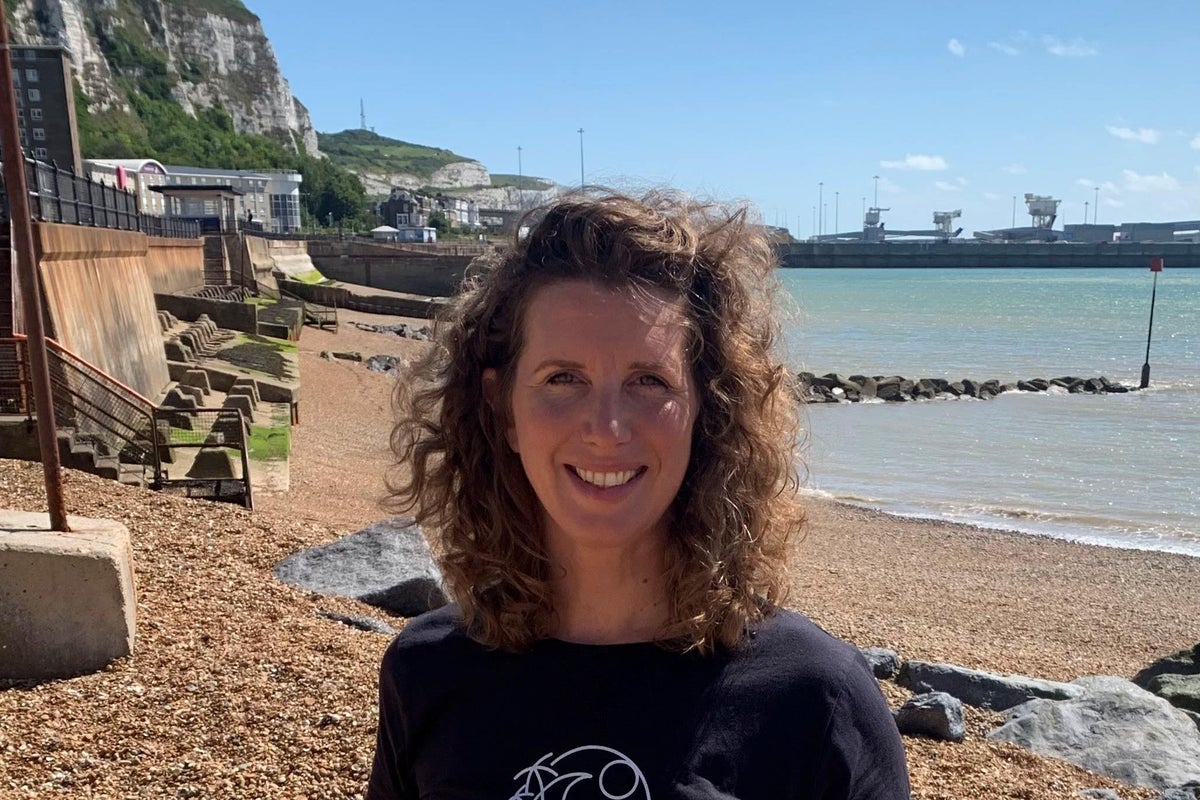
A Dover woman is vying to become the first British female to solo swim the seven “most dangerous” sea channels in the world.
Sarah Philpott is gearing up to begin her third open water swim for the Ocean-7 challenge, which will see her start her crossing in the middle of the night in the Pacific Ocean to avoid high winds next month.
The marathon swimming challenge, with distances ranging from nine to 26 miles, has been completed by just 25 people in its history, Ms Philpott says.
The 44-year-old, who was in the GB triathlon team, finds water to be her “place of solace” and began swimming in the English Channel over the pandemic, leading her to complete one of the crossings on her doorstep.
Speaking to the PA news agency, Ms Philpott said: “Being in the water is like therapy, my place of solace. That’s one of the main reasons for me. It’s a very meditative state I have to get into.”
Describing the scenery of the sky and water as being either blue, grey or black, she added: “It’s an incredibly isolating experience actually when you’re in the water…
“When you swim you have to keep your mind highly alert to your surroundings but surroundings are pretty bleak – it’s a really tough sport.”
And she said: “When you are in the water you have got nothing to see, you can’t speak and most of us wear ear protection and can’t hear anything… the water is so cold. Depending (on) how cold it is, it can turn your skin numb.”
Alongside the bustling ferry route between England and France, the endurance swimmer, who works at a software development company, has also completed the North Channel between Ireland and Scotland and is now taking on the Catalina Channel between Catalina Island and Los Angeles on October 10.
International swims, however, can rack up costs of at least £8-10,000 and Ms Philpott has been fundraising to cover the cost of crossing the Catalina Channel, which includes paying for a support boat and team, flights, observer fees and more.
The big challenge for this swim, Ms Philpott says, will be having to start the swim in the “pitch black” to avoid the high winds of the Pacific Ocean which are calmest just before midnight.
She will then swim in darkness for seven hours before swimming for a further five to eight hours in daylight.
“To jump off that boat into the black abyss of the ocean, I can’t predict what the sea life is going to do. I can’t see it, I can’t see what’s coming towards me, I have no control over any animal that comes towards me,” she said.
“It’s about having that mindset of overcoming your fear… That’s the big challenge for me on this swim.”
She added: “I just hope I don’t see a great white (shark).”
Through her swimming, Ms Philpott is also trying to raise awareness of environmental issues and mental health, which she is passionate about, hosting talks at local schools about sustainable living.
She is also inspired by Britain’s first female swimmer to cross the English Channel, Mercedes Gleitze, in 1927, in an era when swimmers wore woollen costumes.
Praising the “true pioneer”, Ms Philpott said: “When you do the sport and understand the sport and wind the clock back 100 years, what she achieved was phenomenal.”
In her own quest, Ms Philpott said it is an “opportunity (for) women of all ages to go (and) chase your dreams and go and be brave.”
After crossing the Catalina Channel, Ms Philpott must still swim the Strait of Gibraltar between Spain and Morocco, the Cook Strait between the North and South Island of New Zealand, the Tsugara Strait between the North and South Island of Japan and the Molokai Channel between Molokai and Oahu in Hawaii.
The former triathlete spends around 10-20 hours a week training in the summer, including long swims of four to six hours in Dover harbour.
While a number of factors, from the weather conditions to availability of support teams and funding, means a specific date is not set to finish the Ocean-7 challenge, Ms Philpott is saving the most challenging swim – the Molokai Channel – until last.
The ocean activist said: “I’m an average Joe with an average job, an ordinary person trying to do something extraordinary.
“I’m taking inspiration from Mercedes Gleitze and I’m just living a dream, thinking, ‘Let’s see what I can do’.”







